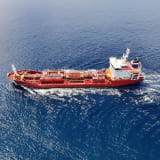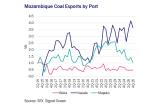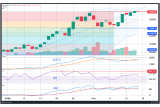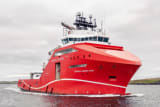
The US hurricane season is in full swing and the newest named storm – Francine – is already here. It is expected to make a landfall as a category 1 hurricane along the US coast of Louisiana on Wednesday or Wednesday night (11 September).
“So, what? We’ve seen this movie before – it is not the first, nor is going to be the last hurricane.”, one might say. But as the saying goes – this time it’s (a bit) different.
As it happens, Louisiana is home to a lot of the chemical capacity in the US Gulf. There are plants for olefins, glycols, biodiesel, styrene, methanol, caustic soda, ethylene dichloride (EDC), ethylene, etc. For certain products, such as caustic soda, EDC, ethylbenzene, styrene, methanol and linear olefins, about half of the total US capacity is concentrated in the state.
As the hurricane is approaching, oil and chemical production in the region is being shut. The ports of Houston, Galveston, Texas City and Freeport in the neighboring state of Texas are being closed. Doubtless, all this would cause delays in the vessel programs – for both COA, as well as spot shipments. Thus, an already tightening tonnage in the US Gulf may tighten further with an accompanying firming up of freight rates.
But besides that there is another important point to note and this concerns Europe. The chemical industry on the Old Continent is more and more exposed to external pressures as it keeps struggling to find its way back to competitiveness and profitability. With many of the older and less profitable plants running at reduced rates, expected to be shut down or already shut, Europe is becoming more dependent on imports. For certain products for which imports form up a substantial part of the total supply in Europe – such as styrene – this means more vulnerable supply chains and more price volatility.
In the past 10 years US styrene exports to Europe have been averaging more than 350,000t per year, or about 10% of the Continent’s own nameplate capacity. It becomes increasingly important for Europe to secure uninterrupted supply of styrene. And if the supply from the US is reduced for some reason, this would move the needle in prices as happened recently in August when the spread between Europe and US styrene reached about $350/t.
Thanks to climate change, scientists say the frequency and intensity of hurricanes and typhoons is only going to increase in the future. But that future is already here. This year the US is expected to have record-breaking number of hurricanes with a total of 14. They certainly appear to be occurring more frequently – every 2-3 weeks.
There is a silver lining in this – one can expect higher price volatility and more arbitrage opportunities in Europe. But while this is good for the markets supplying Europe (mostly the US and the Middle East), this is not such good news for the owners who are going to send ships to Europe with these arbitrage cargoes. The ongoing struggle of the European chemical industry means the chemical tanker market out of Europe will likely get worse (before it gets better), potentially leading to more ballasting ships. As the lack of cargoes out of Europe seems to be a chronic issue by now – here is an outlandish idea: perhaps it is time to consider some sort of ballasting premiums for chemical cargoes imported into Europe.
By Plamen Aleksandrov, Head of Research – Chemicals, SSY.
Articles
You may also be
interested in
View allGet in touch
Contact us today to find out how our expert team can support your business
















